- Not acting the part - 24th February 2026
- Death wish - 23rd February 2026
- Return to sender - 20th February 2026
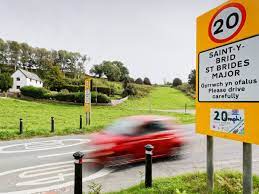
There are now growing signs of a backlash against protests about the 20 mph speed limit in Wales.
One motorist told The Eye: “This has been incredible to watch. What a lot of people don’t seem to realise is that you get to places FASTER!”.
It is also viewed by some who remain uneasy about the new policy, that sending death threats to senior politicians is simply going too far.

Another driver said to us: “I just don’t like it. This thing about sending these messages is too much for me”.
The comment endorses the fact that the police have opened an investigation into “reports of malicious communications” sent to the Welsh First Minister (FM), Mark Drakeford.
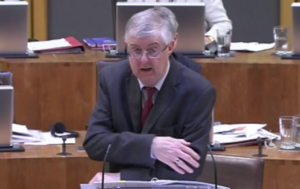
Mr Drakeford told the Welsh Parliament/Senedd Cymru (WP/SC), that apart from the death threats, he had also been sent “vile” messages, and supporters of the lower speed limit deserved to be treated with respect.
The controversial scheme also appears to have become a political football now – with many parties supporting it (including the Labour Welsh Government [WG]), while others oppose it (among them the Welsh Conservatives [WC] as well as the UK Conservatives [UK C]), and that too has worried some onlookers.
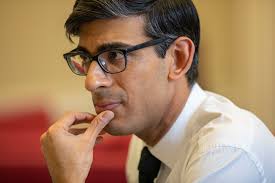
Rishi Sunak (the UK C leader, as well as Prime Minister [PM]) has described the action as “an attack on motorists”, and said that it does not reflect “the right values of British people”.
Mr Sunak has tried to position himself as the motorists’ champion, but his stance may be ill-conceived.
‘Low-traffic neighbourhoods’ are designed to make residential areas safer, and parents tend to be keen on them.

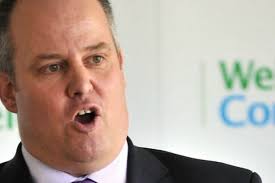
Cutting speeds in built-up areas aims to prevent crashes, which have killed more than 2,000 pedestrians in Britain in the past five years.
But his statements appear to find echoes in remarks closer to home.
The leader of the WC’s Andrew RT Davies accused the WG of having an “extreme ideology”, and not listening after a petition against the law attracted more than 450,000 signatures.
However some have accused him of playing politics, and there are now also major questions about the background of others who have condemned the speed limit.

For instance, there are queries concerning the past of prominent UK C Penny Mordaunt.
She was appointed Lord President of the Council as well as Leader of the House of Commons on September 6 2022, and was also at one time favourite to become leader of the Conservative Party at last year’s internal elections. She has been a firm critic of the speed limit strategy.
Ms Mordaunt has described it as “absolutely insane”, accused, too, the WG of “punishing motorists” with the “crazy” move, and warned that Mr Drakeford’s administration is seen as a “blueprint for governing Britain“ by UK Labour leader Sir Keir Starmer.
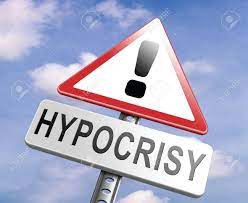 But Ms Mordaunt has been accused of hypocrisy, because she has herself been caught speeding, so, it is argued, she would, of course, be against a speed limit policy.
But Ms Mordaunt has been accused of hypocrisy, because she has herself been caught speeding, so, it is argued, she would, of course, be against a speed limit policy.
According to court papers seen by The Eye, in February Ms Mordaunt admitted driving a Mini Cooper S at 49mph along the A3 near Tibbet’s Corner in Putney, London.
![]()
 Meanwhile, the mainstream media has focused attention on the petition with hundreds of signatures which was sent to the WP/SC calling for the law to be rescinded, but this too has been questioned, because another was delivered supporting the move.
Meanwhile, the mainstream media has focused attention on the petition with hundreds of signatures which was sent to the WP/SC calling for the law to be rescinded, but this too has been questioned, because another was delivered supporting the move.
The speed limit in Wales appears unpopular, yet the same policy has been introduced in Edinburgh, much of London and in other areas across England without causing an uproar.
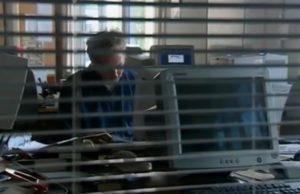
Backing the view of the motorist who spoke to The Eye, some critics agree the new speed limit has not been explained properly to road users – emphasising that although you drive slower, you actually arrive at your destination more QUICKLY!
Research shows that traffic flows more freely at lower speeds.
This is known as the ‘bunching effect’, and is an important school of thought in physics. Drivers also make better use of road space, junctions work more efficiently, and at a higher capacity.

As motorists feel safer, many leave their cars at home, further reducing congestion.
Yet when the policy was introduced, this was rarely mentioned by WG officials, and the new approach was explained on September 17 in a different way.
They said: “We made this change to:
- reduce the number of collisions and severe injuries from them (also reducing the impact on the NHS from treating the people who are injured)
- encourage more people to walk and cycle in our communities
- help to improve our health and well-being
- make our streets safer
- safeguard the environment for future generations”.

Perhaps the way the policy has been introduced was flawed, but it appears that many now believe the move itself was not…
The memories of our Editor, Welshman Phil Parry’s astonishing decades-long award-winning career in journalism (during which he has reported numerous controversies like enforced speed limits) as he was gripped by the rare disabling condition Hereditary Spastic Paraplegia (HSP), have been released in a major book ‘A GOOD STORY’. Order it now!

Regrettably publication of another book, however, was refused, because it was to have included names.
Tomorrow – Phil explains why looking at stories differently, has always been central in his journalism, and this is now underlined by the mainstream media seizing on the fact the latest figures show Wales has the slowest population growth of any UK country with young people leaving, when it HAS grown, and one local authority displays a big increase.









